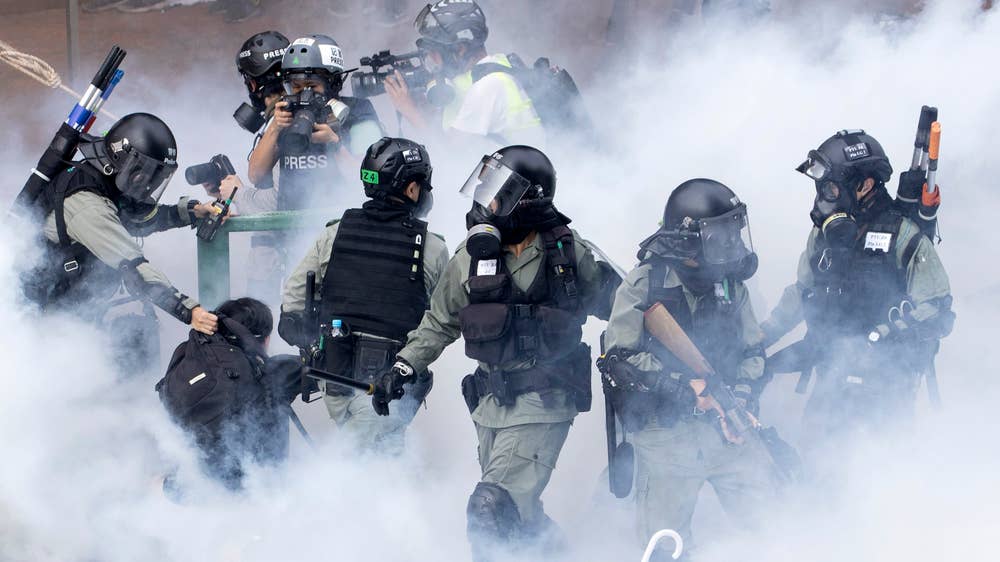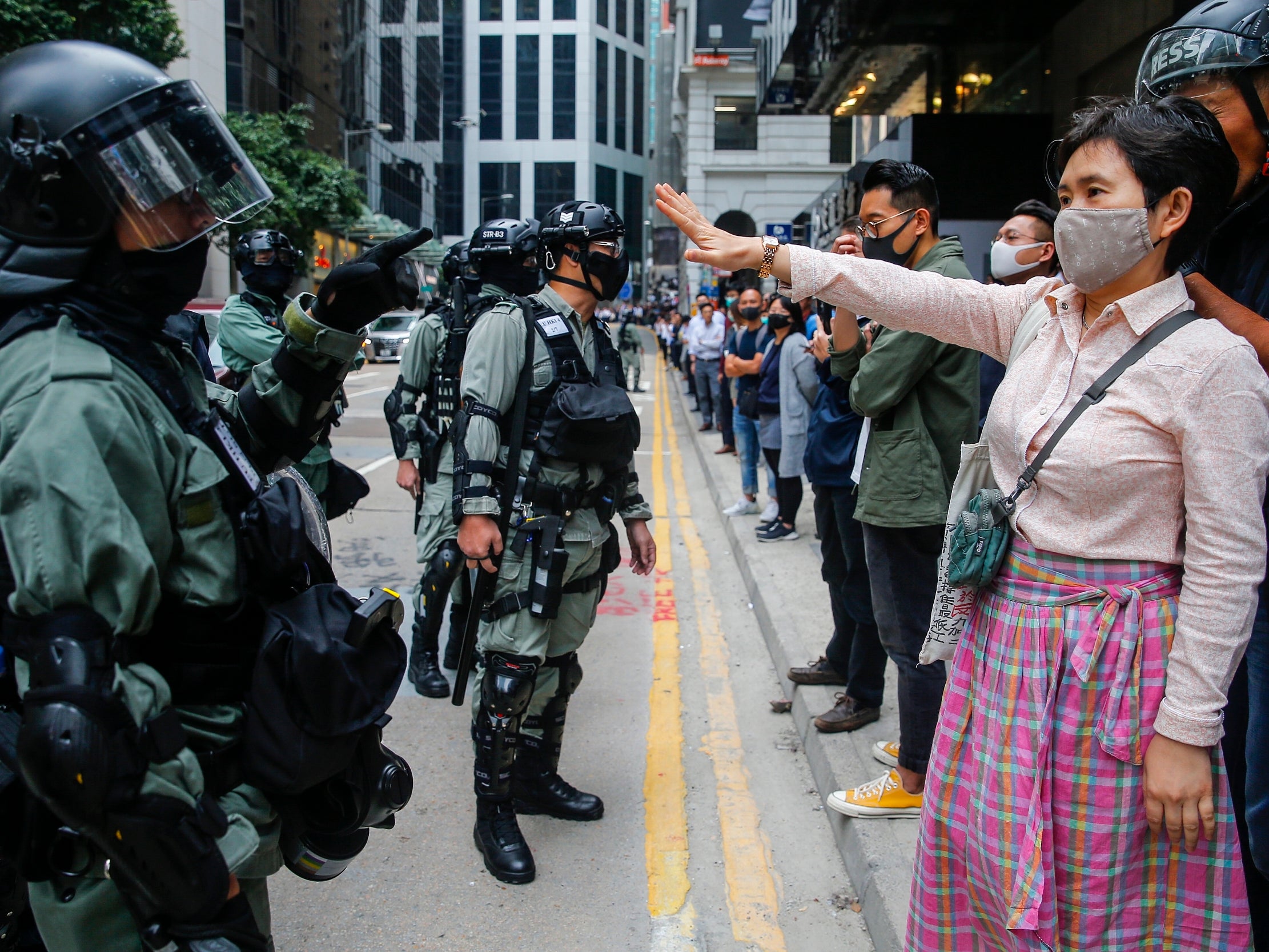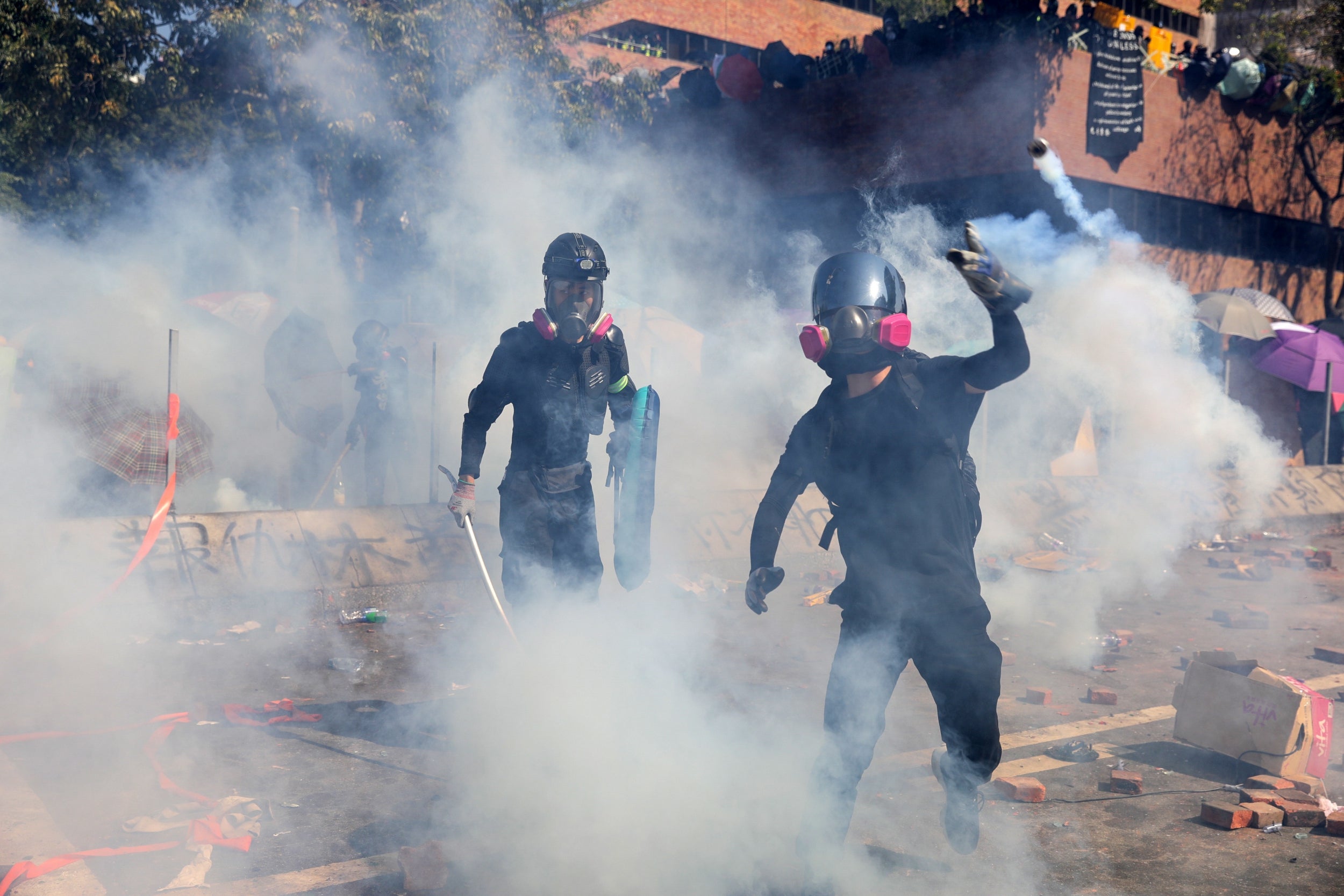More than 1,100 people have been arrested in recent days. If the majority of those arrested during these five months of protests are given custodial sentences, Hong Kong will need to start building more prisons
By Stuart Heaver
The dead birds littering the streets of Hong Kong are an apposite symbol for the broken state of the city.
The tear gas used by police is being blamed for the deaths, with the birds not the only ones being overwhelmed.
The tear gas used by police is being blamed for the deaths, with the birds not the only ones being overwhelmed.
Everything has deteriorated still further in the last week, as the city is gripped by anxiety as Beijing’s Tiananmen-style crackdown seeks to snuff out dissent.
On Wednesday, as schools re-opened for the first time in a week, several children were arrested by armed riot police and driven away to unknown locations in vans with darkened windows.
One local news outlet published guidance for parents from a specialist security consultancy which detailed safety precautions for sending children to school.
On Wednesday, as schools re-opened for the first time in a week, several children were arrested by armed riot police and driven away to unknown locations in vans with darkened windows.
One local news outlet published guidance for parents from a specialist security consultancy which detailed safety precautions for sending children to school.
It included what not to pack in your child’s bag for a police search and advice on how to cope with tear gas.
Hospitals have warned non-emergency cases to stay away from A&E departments as they are overloaded with seriously injured protesters.
No one thinks this is exceptional anymore.
The police siege at Polytechnic University, which kicked off on Sunday evening, has dominated media reports – but the coverage implies events in Hong Kong are a duel between police and a radical section of violent youths.
The police siege at Polytechnic University, which kicked off on Sunday evening, has dominated media reports – but the coverage implies events in Hong Kong are a duel between police and a radical section of violent youths.
This is both misleading and dangerous.




The crisis affects everyone in every corner of Hong Kong.




The crisis affects everyone in every corner of Hong Kong.
“We are all losing” were the words of one finance worker in Central district last week, just before armed riot police used tear gas and pepper spray, to break up another peaceful lunchtime protest staged by office workers.
Everyone is nervous.
Everyone is nervous.
Most citizens I speak to are not scared of the protesters, but rather the police and armed pro-Beijing gangs.
They fear their kids being shot or arrested, or just disappearing without trace.
They fear being pepper-sprayed, beaten or tear gassed.
They are anxious about how to get to work and how to get home.
They worry about losing their jobs for posting political views on social media or disagreeing with their boss.
More than 1,100 people have been arrested over the last few days and if the majority of those arrested over the last five months of protests are given custodial sentences, Hong Kong will need to start building more prisons.
More than 1,100 people have been arrested over the last few days and if the majority of those arrested over the last five months of protests are given custodial sentences, Hong Kong will need to start building more prisons.
Chief executive Carrie Lam’s cardboard cut-out government is making no attempt to seek any solution or de-escalation.
Instead, it is content to allow Beijing a free hand to terrify citizens using the brutal police as the principal weapon.
It’s what locals call ‘baahk sik hung bou’ or white terror.
Part of the strategy is to create the myth that the violence and civil disorder is only being perpetuated by nihilistic and violent extremists and that law and order must be restored.
During the siege at Polytechnic University, a long human chain could be seen snaking along the main thoroughfare in Kowloon formed by ordinary Hongkongers of all ages.
During the siege at Polytechnic University, a long human chain could be seen snaking along the main thoroughfare in Kowloon formed by ordinary Hongkongers of all ages.
It passed supplies hand to hand to the university frontline.
This struggle is not waged by people who are ‘rioters’ or’ angry violent mobs’, yet these pejorative terms have contaminated mainstream media.
It’s an insidious trend because, once the authorities can establish the narrative, Beijing would be free to exterminate these young activists with impunity.
Of course, that doesn’t mean that everyone supports those on the front lines and their confrontational approach, or appreciates their disruption of the transport system.
Of course, that doesn’t mean that everyone supports those on the front lines and their confrontational approach, or appreciates their disruption of the transport system.
Yet millions of citizens still admire them for defying Beijing’s bullying.
I have witnessed angry elderly citizens from modest neighbourhoods hurl vitriol at the police lines, as tear gas and rubber bullets are fired indiscriminately.
I have also heard the ripple of spontaneous applause from bystanders when a platoon of front liners passes by.
Even those that don’t approve of their tactics, don’t hold them responsible for the problem.
Few relish the prospect of these political activists lying inert on the streets of Hong Kong like the little dead birds.
Few relish the prospect of these political activists lying inert on the streets of Hong Kong like the little dead birds.
Aucun commentaire:
Enregistrer un commentaire